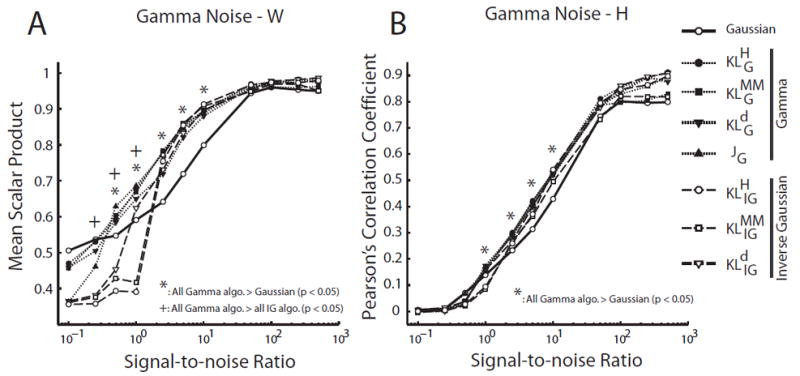Figure 9.

Gamma-based NMF algorithms outperformed the Gaussian NMF algorithm in data sets corrupted by gamma noise. We evaluated the performance of each algorithm in simulated data sets (N = 10) generated by known W (15 × 5 matrix) and H (5 × 5000 matrix), but corrupted by random gamma noise at different signal-to-noise ratios (SNR). A, Performance of NMF algorithms in identifying the basis vectors (W). Performance of each algorithm in each data set was quantified by the scalar product between the extracted vectors and the original vectors, averaged across the 5 basis vectors in the W matrix. Shown in the plot are mean scalar product values, defined as above, averaged across 10 simulated data sets. Gamma-based algorithms outperformed the Gaussian algorithm (but not the IG-based algorithms) at moderate noise magnitude (*; Student’s t-test; p < 0.05); but at high noise magnitudes, the gamma algorithms performed better than both Gaussian- and IG-NMF algorithms (+; p < 0.05). B, Performance of the NMF algorithms in identifying the coefficients (H). Performance of each algorithm in each data set was quantified by the Pearsons correlation coefficient (ρ) between the extracted coefficients and the original coefficients (over a total of 5 × 5000 = 25,000 values). Shown in the plot are ρ values averaged across the 10 simulated data sets. Gamma-based algorithms outperformed the Gaussian algorithm, but not the IG-based algorithms, at moderate noise levels (*; p < 0.05).
